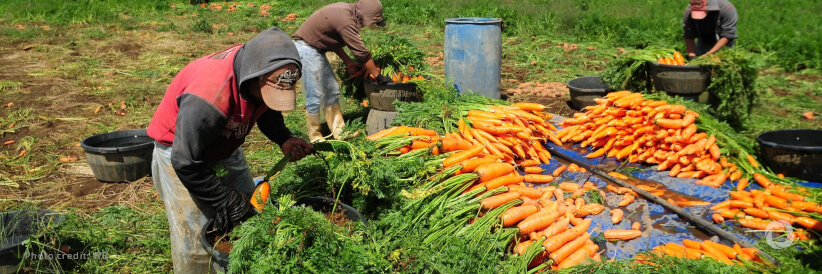From the Red Sea shores of Eritrea to the rural heartlands of Pakistan, small-scale food producers are shaping their future through innovation on their terms, driving positive change for their families and communities.
Some of these bold, people-driven innovations were featured at the International Fund of Agricultural Development’s (IFAD) Innovation Day, marking the launch of a global consultation to co-create an Innovation Strategy for IFAD.
“We strive to make innovation a driving force behind prosperity, resilience, and connectivity across rural economies,” said Carola Alvárez Managing Director of IFAD’s Office of Development Effectiveness, at the opening session today held at IFAD headquarters in Rome.
By placing rural communities at the heart of the process, IFAD aims to scale up people-centered technologies and solutions that build resilience, advance equity, and transform rural futures.
In Eritrea, locally-sourced seaweed and fish waste are being transformed into organic liquid fertilizer, turning marine byproducts into a powerful tool for sustainable food production. Developed under a project funded by IFAD, this nature-based solution has cut fertilizer costs by 35 per cent , increased crop yields by 27 per cent, and created more than 250 jobs—90 per cent of them for women—while also reducing marine pollution and carbon emissions. With production scaling rapidly, it’s a blueprint for climate-smart agriculture in vulnerable regions.
In Pakistan, where limited internet access and literacy barriers often exclude rural women from essential information, IFAD has turned the basic mobile phone into a lifeline. In partnership with the Government of Pakistan and Viamo, a global social enterprise specializing in mobile engagement, IFAD launched an audio-based campaign delivering voice messages in local languages on health and nutrition, climate resilience, and gender equality.
The low-cost solution requires no internet, smartphone, or literacy skills, making it fully accessible even in remote areas. It has already reached tens of thousands of women with weekly, tailored messages, empowering them to make informed decisions—one phone call at a time.
“We want to listen better, co-create more, and deliver better results for those who need them most to accelerate rural transformation— and we are inviting all partners worldwide to help us scale them further,” added Alvárez, speaking of the broad, inclusive process to design new transformative solutions for the world’s rural communities under the theme Transforming Rural Futures.
IFAD’s Innovation Strategy will prioritize farmer-centred design, digital transformation, social inclusion—especially for marginalized groups—and climate resilience, with initiatives tailored to address emerging global challenges and rural realities.
The consultation process—open from 20 May—will engage stakeholders globally to refine IFAD’s strategy, ensuring it reflects the needs and knowledge of the communities it serves. A flagship knowledge product, Improving Innovation, drawing on 180 sources and 40 experts, will support the process.

